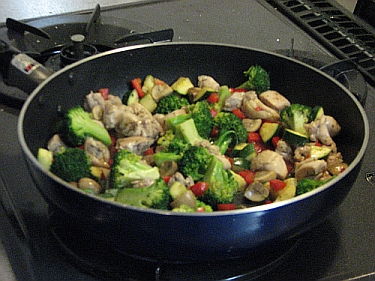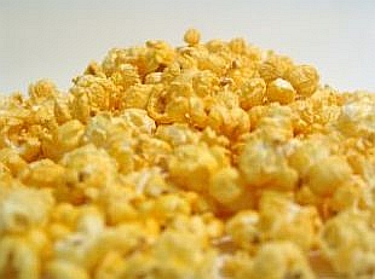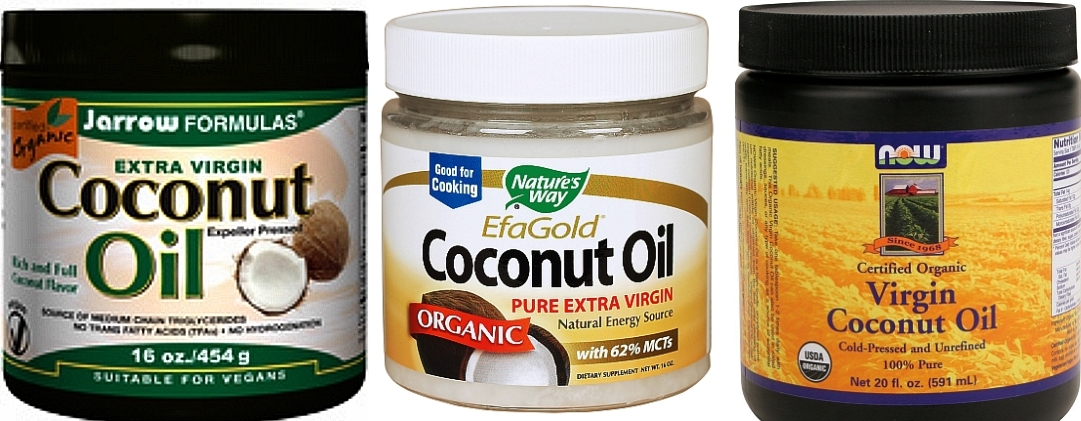More Multi-Purpose Supplements: Coconut Oil

Once considered unhealthy, things are looking up for coconut oil.
One of the ways you can save on supplements is by getting the most out of each dollar you spend. Pooling your orders with friends and family is one good way to do that. Another one is taking advantage of inexpensive products that have lots of different uses or benefits. Alpha lipoic acid is an example of a supplement like that, almost like 2 or 3 separate supplements rolled into one. Another good one is organic coconut oil. Healthy, nutritious, cholesterol-free and super-versatile, you’ll want to keep a jar of organic coconut oil on hand after you find out all the good things about it in today’s AllStarHealth.com blog.
Our understanding of fatty acids and the role they play in human nutrition have come a long way in recent decades, and it wasn’t too long ago that coconut oil was considered one of the most – if not the most – unhealthy of the vegetable oils. Yet in 2009, it’s a best-selling nutritional oil. Why? It’s a long story, but the gist of it is that most coconut oils in the diet were/are hydrogenated and because our understanding of fatty acids and nutrition were much less sophisticated than they are today. In short, we now know better, and know organic coconut oil is not only not harmful, it’s healthy.
Not only is coconut healthy, it’s incredibly versatile both in the kitchen and as a skin and body treatment. Many people purchase two jars at a time, one for the bathroom and one for the kitchen, you’ll see why as you read on.
Saturated Fats: Not Created Equal
Coconut oil is healthy in foods because although it contains saturated fat, it’s not the kind of saturated fat that poses a risk to cardiovascular health like most dairy and animal fats. The saturated fat in coconut oil consists mostly of MCTs or medium chain triglycerides. MCTs don’t clog arteries or raise the levels of harmful triglycerides, instead they are mostly used as fuel for energy. You can imagine MCTs as a cross between a sugar and a fat. Like sugar, MCTs are very easily metabolized for energy. But unlike sugar, MCTs won’t spike your insulin levels and set you up for an energy crash later. Instead, and more like like fats do, MCTs metabolize slowly and steadily, providing sustained energy over a long period of time. In fact, years before coconut oil supplements became popular, endurance athletes were buying and using MCT supplements expressly for their energizing properties.
Like all plant oils, coconut oil is also cholesterol-free. When used as an alternative to other fats that do contain cholesterol, coconut oil can help keep cholesterol levels in their healthy range.
Coconut oils sold as dietary supplements by AllStarHealth.com are of a much higher quality than that produced for commercial bakeries and food manufacturers. “Commercial” coconut oil is pressed from (usually) non-organic coconuts in a variety of ways, but the process usually includes the use of harmful solvents that enable every bit of the oil to be extracted from the crushed fruit material. Then, using other chemicals, the solvents are removed before final processing and packaging.
“Dietary supplement” coconut oil is made from (usually) organic fresh ripe coconuts which are cold-pressed without the use of any solvents and usually packaged as-is without any additional processing. Extra virgin oil is the best choice for the kitchen since extra virgin oil is taken only from the first pressing of the fruit, giving it the most intense coconut aroma and flavor. These are the best choice for using in the kitchen. Other organic coconut oils work well in the kitchen or as a bath and body treatment.
1001 Uses
In the kitchen coconut oil deserves a shelf all its own. Because it melts (liquefies) at a very manageable temperature (around 76 degrees F), you can use it in either liquid or solid form and change from one to the other without much trouble. Although it has a recognizable aroma in raw form, coconut oil has a very subtle effect on the taste of cooked foods because the aromatic compounds responsible for the coconut aroma are very volatile and break down during cooking.
Coconut oil is a superlative saute oil for stir-frying vegetables, seafood, mushrooms or anything else. It imparts only the subtlest coconut flavor and allows the full natural flavors of foods and seasonings to come through. Great for omelets, fruit-filled crepes, and french toast.

Coconut oil - The Ultimate Saute and Stir Fry Oil
Speaking of French Toast, coconut oil is a great shortening for pancakes and waffles, and superior to butter in terms of keeping them from sticking to the cooking surface. The slight coconut taste makes fruit toppings and fillings really come alive.
Since you can use it liquid or solid form by warming or cooling it, coconut oil is an ideal shortening for baking recipes. Cookies, cakes, desserts, breads, pies…..if you can bake it, coconut oil can help you bake it better. Simply use liquid or solid coconut oil to replace your recipe’s shortening using a 1-to-1 ratio.

Bake something heart healthy, coconut oil is cholesterol-free.
One of the things that makes movie popcorn tastes so good – and so unlike the popcorn you usually make at home – is that most movie theater popcorn is popped in coconut oil (albeit commercial coconut oil). For movie-quality popcorn at home, try making a batch of popcorn on your stove top using coconut oil and yellow popcorn kernels.

Makes movie-style popcorn on your stovetop.
Coconut oil complements the delicate flavor of fine white and brown rices, and is a great alternative to butter when rice dishes call for some fats or oils to bring out their full flavor.
Coconut Oil For Skin and Body
Coconut oil is both light and very emollient for use in moisturizing and soothing almost any part of the body and even has some properties that other botanical moisturizers like aloe and shea butter lack. For example, the caprylic acid abundant in coconut oil is a natural anti-microbial and antifungal agent. This makes it great for soothing some types skin irritation with secondary infections, diaper rash being a perfect example.
As a general body moisturizer, coconut oil is best applied after a shower or bath when then skin is still wet. Simply warm some oil between your palms to soften and liquefy it before applying to arms, legs and your whole body.

Apply coconut oil to just-bathed skin to keep it soft and supple.
As a moisturizer for specific parts of the body, coconut oil works wonders.
It soothes chapped or windburned lips without further drying them out as petroleum balms can do.
Coconut oil is a great conditioner for hair and scalp. Liquefy a small amount between your palms and work through towel-dried hair. Then, comb or brush your hair to distribute it evenly. Coconut oil keeps hair looking lustrous and healthy while protecting against dry hair and scalp.

Work a small amount of coconut oil through towel-dried hair to keep it shiny and healthy.
Sunburns are usually followed by peeling. Although it’s not painful, peeling is unsightly and somewhat unpredictable. Peeling can be minimized by applying coconut oil to sunburned skin once it’s no longer painful.
As a massage balm, coconut oil is natural and easy to work with and massaging into the back or hands or feet really leaves them feeling great. And those with sensitive noses will appreciate the fact that coconut oil lacks the heavy scents of many massage oils and balms.
So as you can see, there’s a lot of good things you can do with coconut oil. And as affordable as it is, we think you’ll enjoy finding new ways to use it, too. Found one already? We’d love to hear it. Please send comments to mtaylor at allstarhealth.com.




